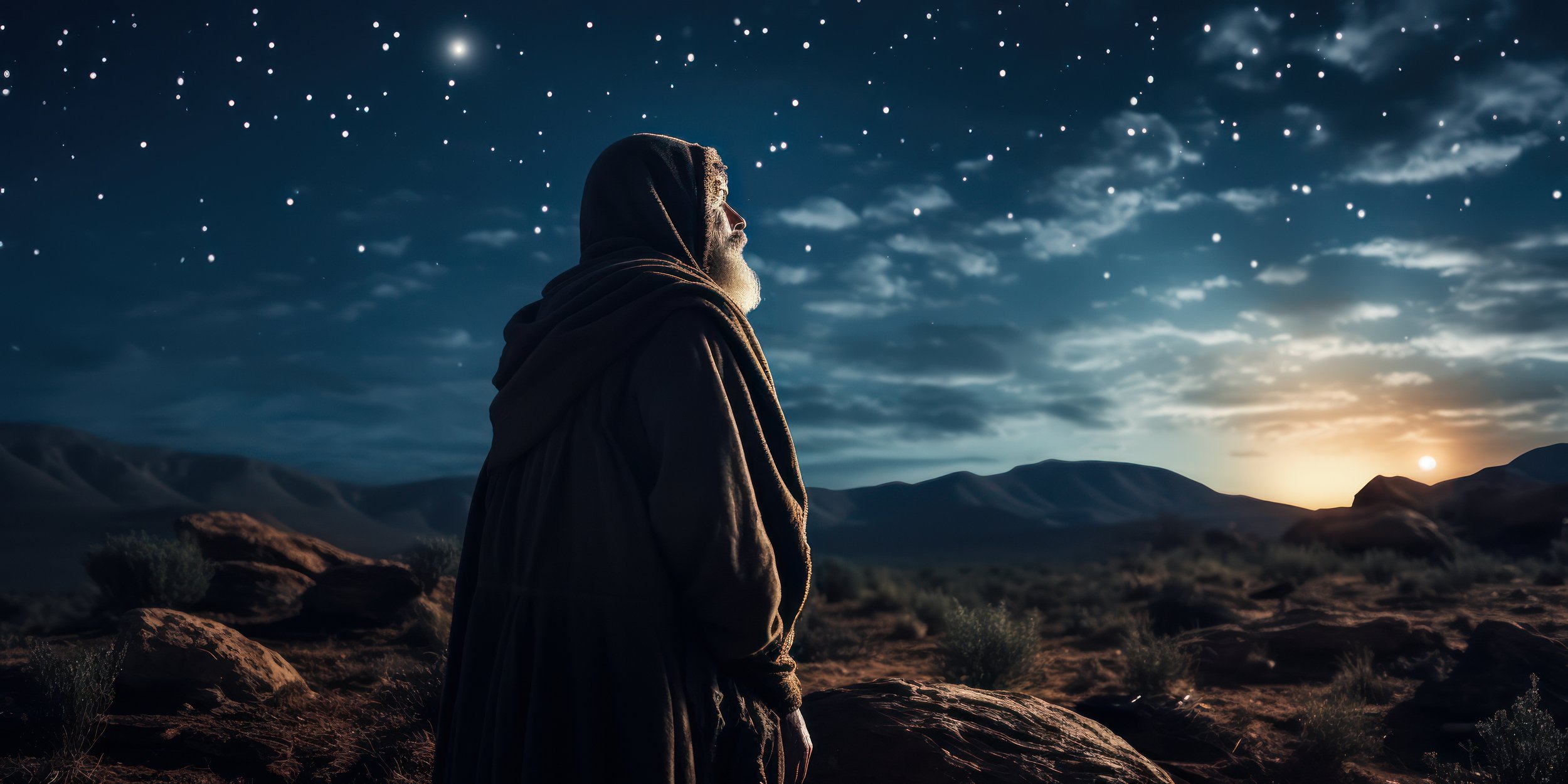Things Not Seen
Soon Israel will observe two national holidays: Yom HaZikaron (Israeli Memorial Day) and Yom HaAtzmaut (Israeli Independence Day). Given the war that has unfolded since October 7, this year there will be many more souls to memorialize on Yom HaZikaron and a greater sense of uncertainty on Yom HaAtzmaut.
Israel has always had a tumultuous history. Through the turmoil of the various rulers described in the books of Kings and Chronicles and under the Assyrian, Babylonian, Persian, Greek, Roman, Byzantine, and Ottoman empires,[1] the Jewish people have survived countless invasions, wars, and exiles – sputtering in and out of existence as a country, if not as a people.
Today’s secular state of Israel is a far cry from the theocracy established during Joshua’s time, or even David’s monarchy, but its existence reminds us of the already-not-yet fulfillment of God’s covenant with Abraham. The first mention of this covenant is in Genesis 12, when God commands Abram to leave his country:
Go from your country,
And from your relatives
And from your father’s house,
To the land which I will show you;
And I will make you into a great nation,
And I will bless you,
And make your name great;
And you shall be a blessing;
And I will bless those who bless you,
And the one who curses you I will curse.
And in you all the families of the earth will be blessed.
(Genesis 12:1–3)
Years later, while Sarai yet remained barren, God reiterated the covenant to Abraham:[2]
I will establish My covenant between Me and you and your descendants after you throughout their generations as an everlasting covenant, to be God to you and to your descendants after you. And I will give to you and to your descendants after you the land where you live as a stranger, all the land of Canaan, as an everlasting possession; and I will be their God. (Genesis 17:7–8)
The author of Hebrews highlights Abraham’s great faith in God. “By faith Abraham, when he was called, obeyed by going out to a place which he was to receive for an inheritance; and he left, not knowing where he was going. By faith he lived as a stranger in the land of promise, as in a foreign land, living in tents with Isaac and Jacob, fellow heirs of the same promise” (Hebrews 11:8-9).
Faith in things unseen (Hebrews 11:1) is the overarching theme of Abraham’s story. Even though he and Sarah only had one son, Isaac, and the only land in Canaan he owned was the field purchased for Sarah’s burial (Genesis 23), Abraham believed God’s promises regarding the land and his descendants. Abraham “died in faith, without receiving the promises, but having seen and welcomed them from a distance” (Hebrews 11:13).
While Hebrews 11 nods to Abraham’s confidence in the Land Covenant, this passage isn’t just about the land of Israel. Abraham’s faith was ultimately directed toward something greater. It was a faith shared by the others mentioned in Hebrews 11: Abel, Enoch, Noah, Isaac, Jacob, Moses, Rahab, Gideon, Barak, Samson, Jephthah, David, Samuel, and the prophets. Some of these lived and died long before God made His covenant with Abraham; others saw the kingdom of Israel at its peak of glory; still others suffered the scourge of war and exile from Israel. “All these, having gained approval though their faith, did not receive what was promised, because God had provided something better for us, so that apart from us they would not be made perfect” (Hebrews 11:39).
If not the land of Israel, what was the promise that Abraham and the others looked forward to? Out of the Promised Land, through the line of Abraham, the Messiah would be born, fulfilling God’s promise to Abraham that “in you all the families of the earth will be blessed” (Genesis 12:3). The life, death, and resurrection of the Messiah has secured forgiveness and eternal life for all who believe.
One day Yeshua (Jesus) will return to Jerusalem to establish His rule. Only then will peace truly come to Jerusalem, when all Israel recognizes Him as the promised Messiah (Zechariah 12:10). In that time, all the world will join the Jewish people in worshiping Him (Micah 4:2).
One need only read the headlines about modern Israel to understand that the time has not yet come. As a nation, Israel remains blinded to the identity of the Messiah. The nation is full of precious people, Jewish and Arab, who do not yet believe. Until His truth reigns in all hearts, there will be no peace in the Land.
As Israel celebrates Yom HaAtzmaut (Independence Day) this year, let us pray for Israelis’ eyes to be opened to their utter dependence on God. Let’s ask God to strengthen believers in Israel and Gaza to proclaim the gospel to their hurting neighbors, and for the unbelievers in Israel and Gaza, that they too will receive the blessing of salvation. Pray for the hastening of Messiah’s return, which alone can bring lasting peace to this troubled world.
We, too, have faith in things not yet seen.
Written by Miriam, Life in Messiah Communications Coordinator
Israel and Gaza are not the only places ripped apart by turmoil. Russia’s war on Ukraine continues, while Haiti’s capital, Port-au-Prince, has been besieged by violent gangs since early March. We may not have the power to bring peace to these countries in crisis, but we can seek peace in our own spheres. How can we be people of peace in our homes, communities, and workplaces?
The world needs the gospel. What resources or opportunities has God given you to witness to others? We can’t fix everyone’s problems, but we do have God’s life-giving Word that gives strength in trials.
Endnotes:
[1] And many other entities, including the Crusaders. Read more here.
[2] God changes Abram’s name to Abraham (“father of many”) in Genesis 17:5.

